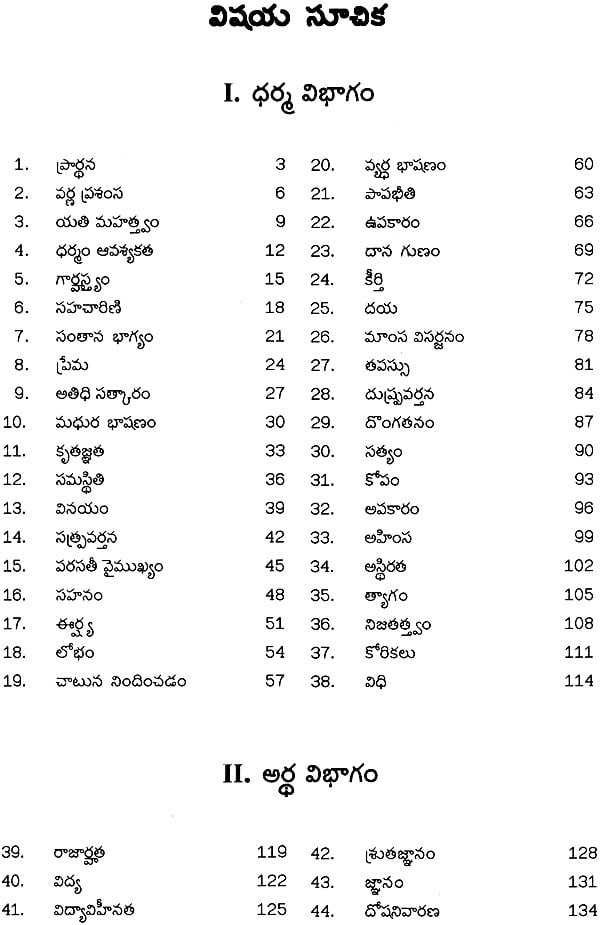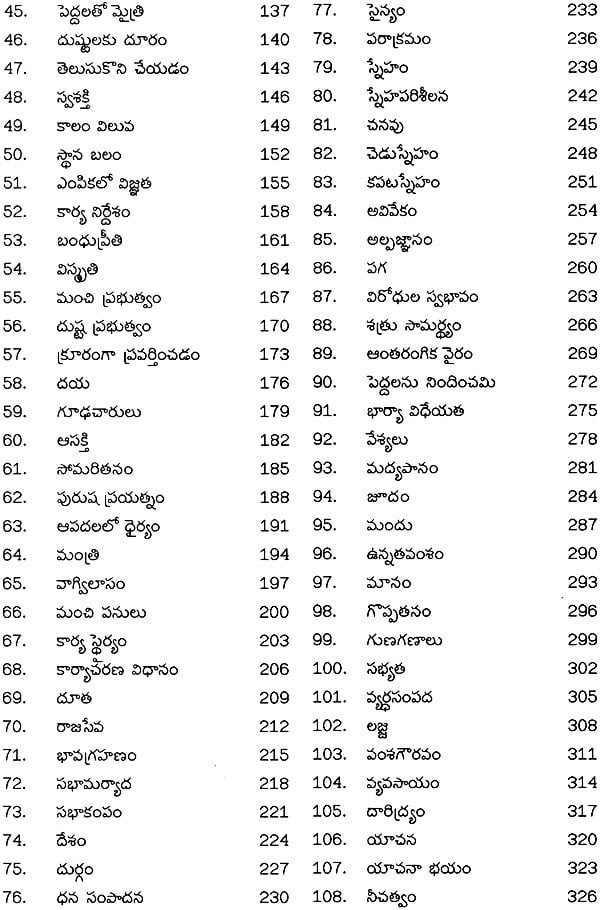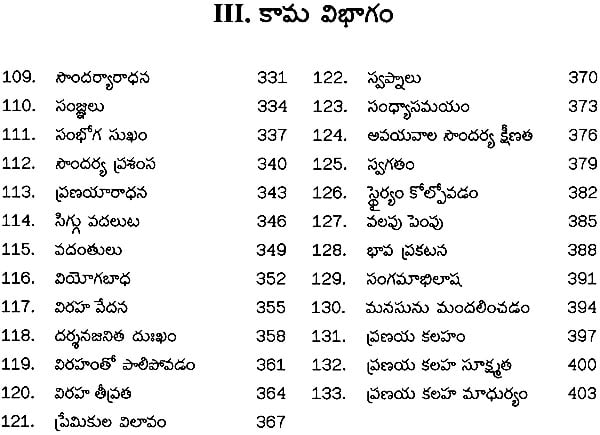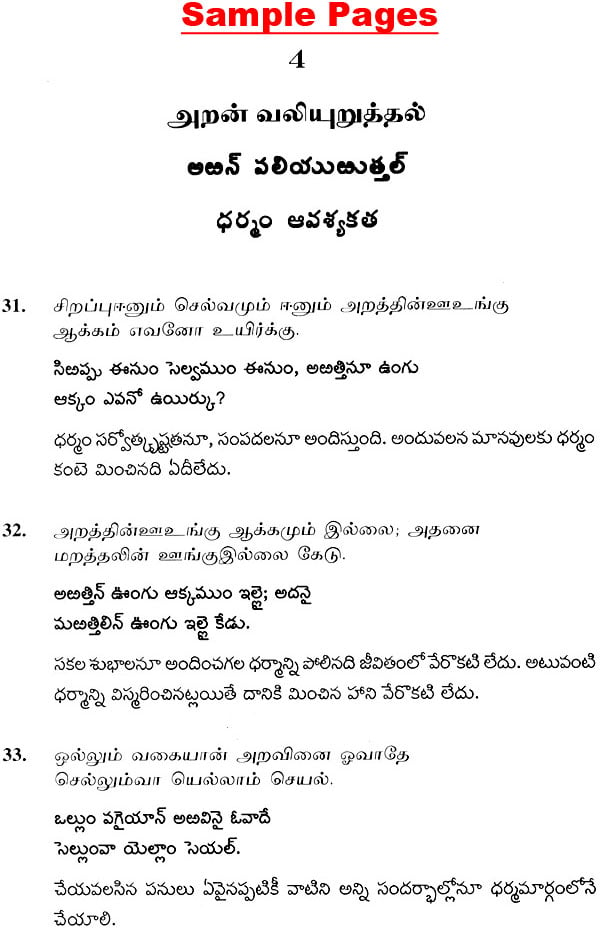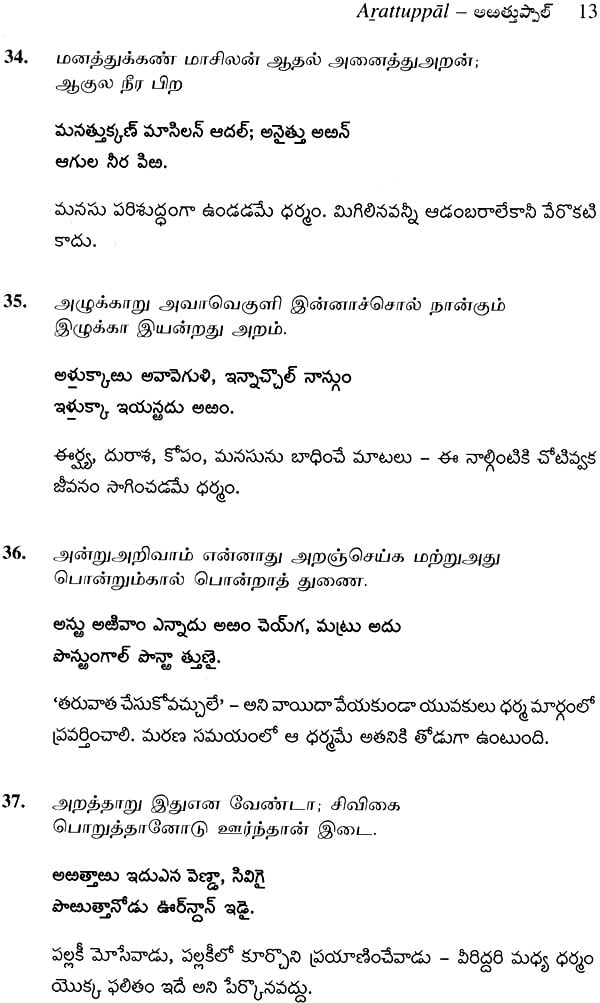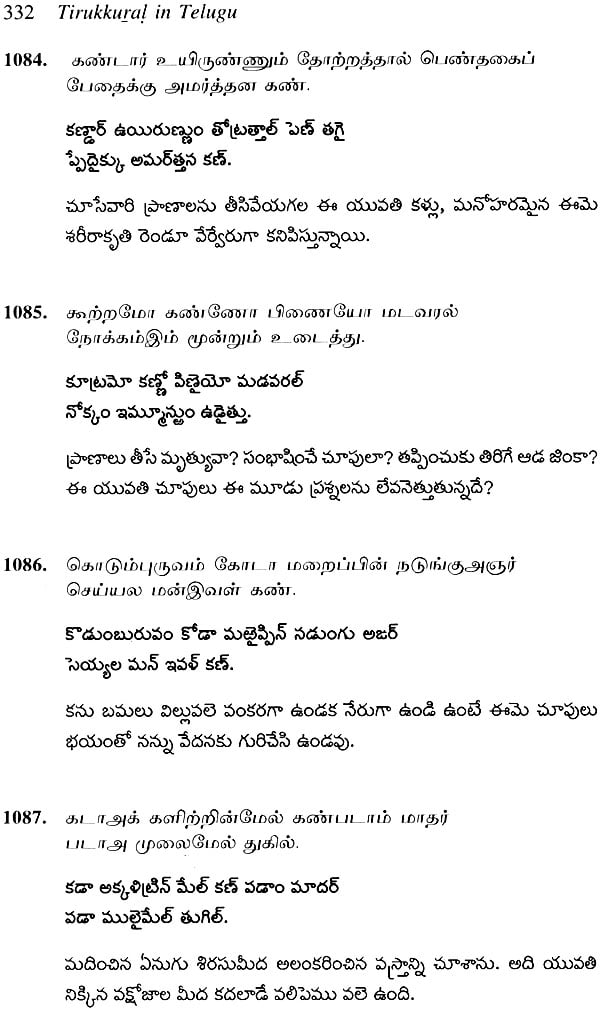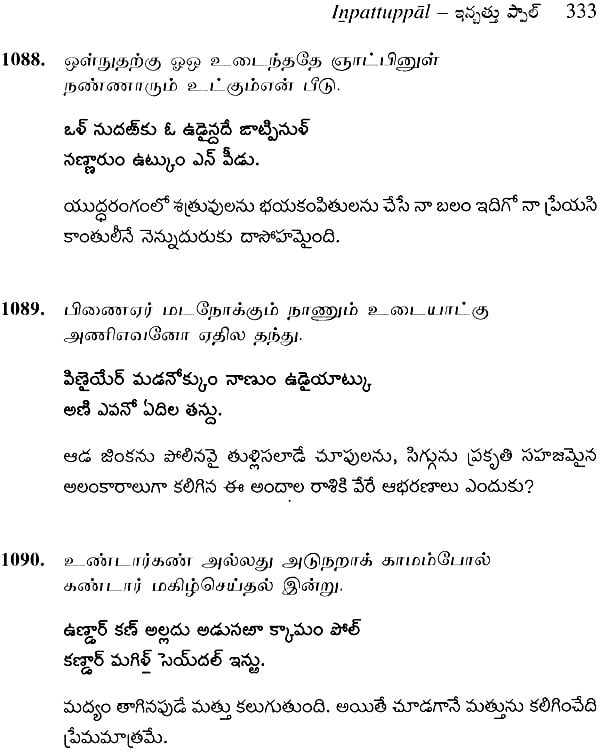
Tirukkural in Telugu
Book Specification
| Item Code: | NZK595 |
| Author: | S. Jaya Prakash |
| Publisher: | Central Institute of Classical Tamil, Chennai |
| Language: | Tamil Text With Telugu Translation |
| Edition: | 2021 |
| ISBN: | 9789381744048 |
| Pages: | 468 |
| Cover: | Hardcover |
| Other Details | 9.5 inch X 6.0 inch |
| Weight | 770 gm |
Book Description

The Tamils may justly be proud of the fact that Tamil has won the status of a Classical language, the status it richly deserves and should have got long, long ago. The Central Institute of Classical Tamil (CICT), established in Chennai, has mapped out various plans including preparation of definitive editions of forty-one Classical Tamil texts and translation of these works into English and other major European languages as well as into major Indian languages and writing of a historical grammar of Tamil. Language being the autobiography of a people, our objective is to preserve and safeguard the invaluable treasure of the literary compositions in our language. If only we could delve into our past and recover the riches and wealth of the mighty treasure trove of Classical Tamil poetry, we will be amply rewarded by its lofty poetry, the poetry that strengthens and purifies the holiness of heart's affection and enlarges our imagination. Apart from these, reading the ancient Tamil texts such as Tolkappiyam, Ettuttokai, Pattuppattu, Tirukkural etc., provides a foundation for scholarship for the present and in this sense they do provide enlightened education.
It is heartening to write this foreword to the series of publications brought out by CICT, which I am sure, will do full justice to the masterpieces in Tamil without compromising on the quality of production. The Cankam corpus being a repository of our glorious culture, it behaves our present and future generations to study them and to convey their message and the vision of life embodied in them to the public at large. Let me, therefore, commend the series to the enlightened beings the world over.
Tirukkural, a classic of 1,330 rhymed couplets in 133 sections of to distiches each, composed in the first century BC is a philosophic poem dealing with the most elemental themes that govern human life: ethics, polity and love. The poem is in three distinguishable parts, Aram, Porul and Inpam. Part I Aram in thirty-eight chapters deals with virtue, moral and cosmic order. Beginning with a prologue in praise of the Almighty, this section expatiates on moral code of conduct, righteousness in private and public life and defines the virtues associated with family life and asceticism. Part II Porul in seventy chapters handles the theme of wealth, social life and political skill. This section is a comprehensive discourse on the rights and duties of the king, laws of good governance, duties of an able administrator and ways and means of protecting and guarding one's nation. Part III in twenty-five chapters, divided into two broad subdivisions, discusses secret courtship and the joys of wedded love. This short section presents a number of captivating dramatic scenes, each of which is a brief analysis of the varying moods of lovers.
Tirukkural is at once a moral treatise and a work of art of the highest order. It employs a single metre, the Kuralvenpa, most appropriate to gnomic poetry. The first line of each couplet consists of four feet and the second line, three. This tight structure does not exercise any restraint on Valluvar's imagination. Each couplet "snatches a grace beyond the reach of art."
Brevity, it is said, is the soul of wit. The wealth and richness of poet-prophet Thiruvalluvar's concise expressions can be seen in the manifold ways these lyrics have been interpreted by scholars and commentators from time immemorial.
The present volume is a commendable translation of the celebrated book into Telugu by Dr. S. Jayaprakash.
I am pleased to thank him for corning forward to undertake this responsibility and bringing it to a successful completion with so much involvement.
I am thankful to the Department of Translation of the Institute and the Publications Division for their help in bringing out this volume.
The Hon'ble Minister of State for Human Resource Development and Vice-Chairman of the Central Institute for Classical Tamil has written the foreword which lends grace to this present volume. We are indeed privileged to have his foreword for this volume and it is our bounden duty to express our sincere thanks and gratitude to him.
The richness of Tamil Literature is largely attributed to the divine book - Tirukkural. Thiru meaning all that is holy and Kural meaning a short verse. It's the only work of literature that is in existence for thousands of years, yet still holds so much value to real life. This great work is a collection of 1330 couplets, each expounding very profoundly on the moral values and principles to be upheld for welfare of the society as a whole.
The greatness of this work is due to the unfathomable truth - it is still relevant in today's society even 2000 years after this book has been written and also, without any doubt 2000 years from now!!! No other book from any culture, in any time period or even any other language has managed to contribute the same profound wisdom as insightfully as Tirukkural.
Legends abound, telling the divinity of this work. When the great philosopher and poet Tiruvalluvar wrote this book, he was challenged by great scholars on the literary genius of his work. They decided to test this great literary work, by placing it on a heavy plank in the holy lotus tank of Meenakshi Sundareshwarar Temple in Madurai. Much to the befuddlement of all those present, the manuscripts of Tirukkural, floated majestically in the water, thus proving the presence of a divine intervention for this literary masterpiece.
This magnum opus exalts on three issues which is of paramount importance to Mankind - The Ethical Values (Dharma) to be followed, The Management of Wealth and finally on the Virtues of a good family life. The First chapter focusing on the moral values that need to be followed in one's society, how to live life, the path to righteousness, how to gain respect of others and stresses on what is important to life and what is not. The second chapter discusses about the importance of various types of wealth, the issues of public affairs, socio - economic conditions in one's life, etc. Finally, the last chapter deals completely with family life. How to have a peaceful family life, by being a dutiful husband, devoted wife, raising children with high moral values, discipline, etc.
Each of these three sections has varied number of chapters, totally 133, consisting of 10 couplets each. A unique significance of these couplets is that, they uniformly have exactly 7 words, 4 in the first sentence and 3 in the second sentence, which is a feat in itself.
